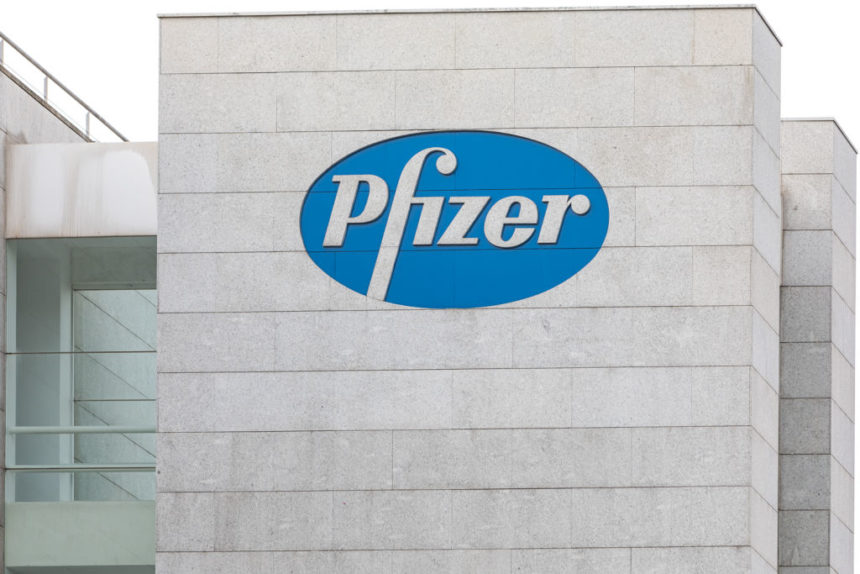One of Pfizer’s most important pipeline programs has hit a snag.
Due to a worrisome safety signal, its once-daily oral GLP-1 compound lotiglipron will be discontinued, the company said Monday morning. Instead, Pfizer’s twice-a-day pill, danuglipron, will be advanced toward late-stage testing as the company attempts to tap into the white-hot weight-loss market led by Novo Nordisk and Eli Lilly.
“This represents a clear setback to the program in our view with lotiglipron expected to be the more competitive of the two assets,” J.P. Morgan analyst Chris Schott wrote in an investor note.
Pfizer had been evaluating the two oral GLP-1 candidates, with plans to take only one forward depending on trial data. However, due to elevated liver enzymes seen in patients taking the drug during testing, Pfizer said it decided to shed the lotiglipron program and move forward with its twice-daily GLP-1 pill.
None of the subjects in the lotiglipron trials reported liver-related symptoms or side effects, Pfizer said, and there was no evidence of liver failure and none required treatment. The firm added that the liver enzyme elevations observed in the lotiglipron trials have not been seen in patients enrolled in danuglipron trials.
As sales have surged for once-weekly injections like Novo’s semaglutide (marketed as Ozempic and Wegovy for treating diabetes and obesity respectively), analysts have raised revenue forecasts. The “diabesity” market is likely to top out at more than $100 billion by the early 2030s, with as many as 10 competing products.
Drugmakers suspect that an oral therapy could appeal to patients who are averse to shots. In a survey of clinicians by J.P. Morgan, physicians predicted increasing use of orals if these drugs can match the current profile of Ozempic.
Last month Pfizer said treatment with a 120mg dose of danuglipron led to average weight loss of about 4.6 kilograms, or about 10 pounds, at week 16 of a Phase 2b trial. That’s similar to the weight loss seen with semaglutide.
That said, analysts have been less than impressed with danuglipron due to a number of commercial uncertainties. Those range from its twice-daily dosing to tolerability and titration issues.
In a note to investors Monday, Umer Raffat, an analyst with Evercore ISI, labeled lotiglipron’s discontinuation “a big setback,” not just on Pfizer’s overall GLP effort but also from a broader pipeline perspective.
“Sure, they’ll move forward with danuglipron…but it’s not the best shot they had,” Raffat wrote. “How would a twice-daily oral GLP stack up commercially? Short answer: twice-daily = HUGE commercial disadvantage.”
Pfizer is reportedly working on a once-daily modified release version of danuglipron. “However, when Ph 3 is started, it will be on the existing twice-daily form…and separate studies on once-daily will get that over the line,” Raffat added.
Nor is he completely convinced of danuglipron’s safety: “Are we sure danuglipron won’t suffer lotiglipron’s fate?”
“Danuglipron is much further along – so it’s definitely passed the safety hurdle lotiglipron didn’t,” Raffat continued. “However, if you asked me on exact liver enzyme elevation instances: It’s not zero: 2/10 pts at 200 mg CR once-daily dose had ALT increase in ph 2.”
Lilly and Novo, meanwhile, continue to advance a number of additional programs that are further raising the competitive bar. Lilly, which sells the injectable GLP-1 Mounjaro for diabetes, has already moved its once-a-day GLP-1 pill, orforglipron, into Phase 3.
Lilly said last week that orforglipron resulted in 14.7% weight loss after 36 weeks for people who were obese or overweight. Additionally, Mounjaro helped people with type 2 diabetes who were also obese or overweight lose an average of 15% of their body weight, the company said. Both readouts were announced at the annual meeting of the American Diabetes Association.
Novo already markets an oral form of semaglutide. But fasting requirements with the pill, dubbed Rybelsus, have posed a barrier to adoption.
Pfizer said additional danuglipron Phase 2 data are expected later this year in non-diabetic, obese patients, and analysts expect a Phase 3 trial to start next year. The drugmaker hasn’t commented on the potential timeline for its work on a once-daily version of danuglipron.







